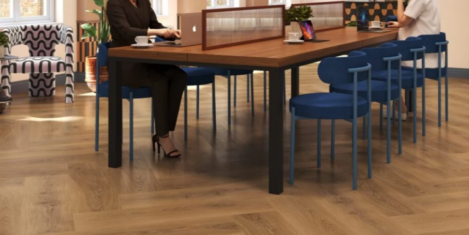To provide the best experiences, we use technologies like cookies to store and/or access device information. Consenting to these technologies will allow us to process data such as browsing behaviour or unique IDs on this site. Not consenting or withdrawing consent, may adversely affect certain features and functions.
The technical storage or access is strictly necessary for the legitimate purpose of enabling the use of a specific service explicitly requested by the subscriber or user, or for the sole purpose of carrying out the transmission of a communication over an electronic communications network.
The technical storage or access is necessary for the legitimate purpose of storing preferences that are not requested by the subscriber or user.
The technical storage or access that is used exclusively for statistical purposes.
The technical storage or access that is used exclusively for anonymous statistical purposes. Without a subpoena, voluntary compliance on the part of your Internet Service Provider, or additional records from a third party, information stored or retrieved for this purpose alone cannot usually be used to identify you.
The technical storage or access is required to create user profiles to send advertising, or to track the user on a website or across several websites for similar marketing purposes.
 Focusing attention on your mobile phone instead of your partner doesn’t just strain your relationship – it also affects creativity at work, according to researchers from the Universities of Bath, Aston, and IESE Business School. The study claims to shed light on the negative effects of ‘phubbing’, the idea of snubbing someone in favour of your phone, which is known for its detrimental impact on relationships and mental wellbeing. Now the study of working couples in the US points to repercussions in the workplace as well, but only for female partners. (more…)
Focusing attention on your mobile phone instead of your partner doesn’t just strain your relationship – it also affects creativity at work, according to researchers from the Universities of Bath, Aston, and IESE Business School. The study claims to shed light on the negative effects of ‘phubbing’, the idea of snubbing someone in favour of your phone, which is known for its detrimental impact on relationships and mental wellbeing. Now the study of working couples in the US points to repercussions in the workplace as well, but only for female partners. (more…)
































April 9, 2024
The significance of women’s health is increasingly acknowledged in the modern workplace
by Olga Kokshagina • Comment, Wellbeing